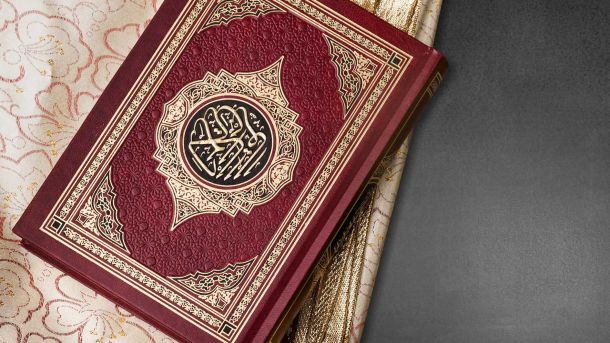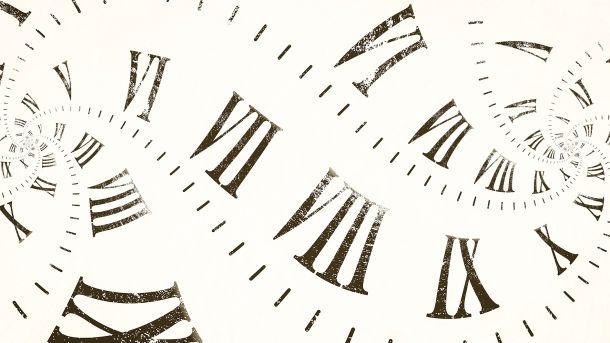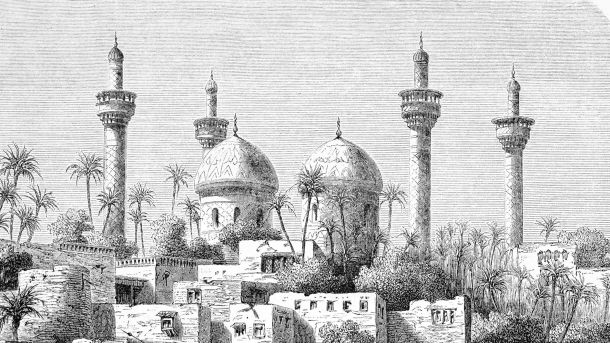News Archive
Jun 5, 2007
The Tafsīr of Sūrah al-Nabāʾ (The News)
The Tafsīr of Sūrah al-Nabāʾ (Sūrah 78)
An emphasised and a confirmed warning for those who deny this Day that they will certainly come to know that the Day of Resurrection is true. Allāh shows His abilities to produce the Signs of this Day and He tells about its magnitude in the following verses so that the people contemplate and realise that Allāh, Who is able to bring about these Signs, is All-Able to bring life to the Dead as well as Resurrection.
Shaykh Ṣāliḥ al-ṢāliḥAll praise is due to Allāh, we praise Him, and seek His help and forgiveness. We seek refuge in Allāh, Most High, from t…
Jun 5, 2007
The Sign of the Times
So what is the correct manhaj (methodology) which is obligatory to traverse, if we desire good for ourselves and for the Ummah of Muḥammad ﷺ ? Is it concentrating upon siyaasah (politics)? Ibn Masʿūd has explained that this is not what brought goodness to the Ummah
Shaykh ʿAbdullāh ibn Ṣāliḥ al-ʿUbaylānrImām al-Bukhārī (d.256H) – raḥimahullāh – said:
“Chapter: There will not come a time, except that after it will be more evil than it.”2
[He then said with his isnād]: From Zubayr Ibn ‘Adee, who said: We came to Anas Ibn Mālik and complained to him about (the oppression of) al-Ḥajjaaj. So he…
Jun 5, 2007
Tafsīr of Sūrah al-Furqān, Commentary to ‘The Criterion’
The way of the disbelievers was to invent certain characteristics that they thought a prophet should have and then show how the Prophet was lacking in these. However in this they were wondering aimlessly, not able to find a set of characteristic that they could all settle on as has preceded in the previous verse.
Al-ʿAllāmah Muḥammad al-Amīn al-Shanqītī[Compiled from the tafsīrs of al-Tabarī, al-Qurṭabī, ibn Kathīr, al-Shawkānī, as-Saʿdee and al-Shanqītī, may Allāh have mercy on them all.]
Blessed be He Who sent down the Criterion to His Servant so that he may be a Warner to the w…
Jun 5, 2007
Selected Tafsīr from Aḍwāʾ al-Bayān
The saying of the Exalted, ‘You Alone we ask for help’: meaning that we do not seek aid from anyone but You because the command/affair in it’s totality is under Your control Alone, no one else has even an atoms weight of control over it.
Al-ʿAllāmah Muḥammad al-Amīn al-Shanqītī
Sūrah al-Baqarah, 1:20 | 15 pages
Sūrah al-Baqarah, 2:30 | 15 pages
Sūrah al-Baqarah, 55-173 | 31 pages
Jun 5, 2007
The Legacy of Imām Ibn Bāz
And then Ibn Bāz reminded King of an oath he made before his ascension, saying “On this occasion I would like to remind you of your promise to the council in your letter of 16/7/1401 (May, 1981) of the determination of the government to set up an Islamic financial agency.
Taken from ‘A Question of Interest: the Paralysis of Saudi Banking’ by P.W. Wilson (pp.186-188):
The Asharq Al-Awsat article was just SAMA’s [Saudi al-ʿArabīan Monetary Agency] opening parry…the agency again tried to question Islamic banking by allowing one of its employees, [X], to question the ulema’s stand on in…
Jun 5, 2007
Clarification of Doubts Concerning the Life of Shaykh al-Islām Muḥammad Ibn ʿAbd al-Wahhāb
And I believe in the obligation of submitting and being obedient to the Imāms of the Muslims, the dutiful of them as well as the wrong-doers of them, as long as they don’t order disobedience to Allāh, and the person who is responsible for Khilāfah; he whom the people have gathered around and accepted, and he who has forced his way to become Caliph as well, his obedience is obligatory and revolting against him is unlawful (ḥarām).
Some of the enemies of the Salafī Da‘wah have claimed that Shaykh Muḥammad Ibn ʿAbd al-Wahhāb broke away from the Ottoman Caliphate, and thus depart…
Jun 5, 2007
Ibn al-Qayyim – A Brief Biography
He is the Imām, the ḥāfiẓ (preserver of ḥadīth), the Scholar of tafsīr (Qur’anic exegesis), uṣūl (fundamentals of jurisprudence and law) and Fiqh (jurisprudence), Abū ʿAbdullāh Shamsud-Dīn Muḥammad Ibn Abī Bakr – better known as Ibn Qayyim al-Jawziyyah (or Ibn al-Qayyim).
And if there were no virtues of Shaykh Taqiyy al-Dīn [Ibn Taymīyyah], except for his famous student Shaykh Shams al-Dīn Ibn al-Qayyim al-Jawziyyah—the author of many works, which both his opponents and supporters benefited from—then this would be a sufficient indication of his […
Jun 5, 2007
Abū ʿAbdullāh ʿUbaydullāh ibn Muḥammad ibn Baṭṭah al-ʿUkbarī al-Ḥanbalī
The Imām, the Ḥadīth Master (Ḥāfiẓ), the Ḥanbalī Legal Jurist (Faqīh), the devout worshipper and ascetic. He was born in the year 304H in Ukbarā, a land close to Baghdād, and died in the year 387H. His father was a Faqīh and it was under his auspices that he began his studies and he often reports from him in his books. He was sent to Baghdād to study ḥadīth while still young, then he traveled to various lands such as Shām, Baṣrah, Makkah, and Thagur studying under a host of the leading scholars of his time and excelled in ʿaqīdah, ḥadīth and fiqh.
He heard from the likes of Abū al-Qāsim al-B…
Jun 5, 2007
A Brief Biography of Abū Bakr Muḥammad ibn al-Ḥusayn al-ʿĀjurrī al-Baghdādī
The Imām, the Muḥaddith, the Example…. He was a scholar enacting what he taught, trustworthy and precise, possessing dīn, the follower of the Sunnah.
The Imām, the Scholar of Ḥadīth, the Example, the Shaykh of the Noble Haram, author of many beneficial works, truthful, the devout worshipper and the one who closely followed the Sunnah. He was born in Baghdād in the year 280H, later he moved to Makkah and died there in the year 360H after having lived there for some thirty years.
He heard from: Abū Muslim al-Kajjī, Muḥammad ibn Yahyá al-Marwazī, Abū Shu`ayb al-Harrānī…








